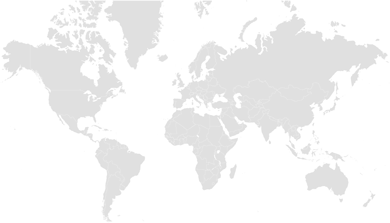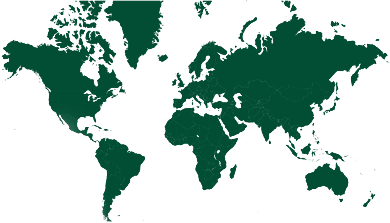Framework
2024 • Institute for Sustainable Futures, University of Technology Sydney The 8Rs framework for circular water and sanitation systems
The 8Rs framework is a strategic tool designed to guide the application of circular economy principles in achieving inclusive, climate-resilient water and sanitation services. Built on eight interconnected strategies—Reduce, Reuse, Restore, Rethink, Recognise, Resilience, Redistribute, and Relational—the framework provides actionable guidance to integrate circular approaches into WASH systems. Developed within the CIRCLE WASH project, it is tailored for use by planners, policymakers, and service providers aiming to create sustainable WASH solutions that incorporate circular economy principles. The framework was piloted in Vietnam and Kiribati to explore diverse cultural, institutional, and environmental contexts.
Recovered Materials & Products
Energy
Solid fuel
Heat
Biogas
Nutrients
Fertilizer
Compost
Digestate
Soil conditioner
Water
Waste Streams
Faecal sludge
Wastewater
Organic solid waste
Confirmed countries
Germany


What is this tool intended for?
The 8Rs Framework is designed to support the transition from linear to circular water and sanitation systems by promoting resource efficiency, inclusion, and resilience. It provides a structured approach for stakeholders to rethink and optimize WASH services in alignment with sustainability goals, ensuring that water, nutrients, and energy are managed in a way that enhances long-term environmental and social benefits.
How does this tool work?
The framework is built around eight interconnected strategies that guide the application of circular economy principles in WASH systems. It encourages reducing resource consumption and eliminating unsustainable practices while identifying opportunities for reusing and recovering water, nutrients, and energy. It also emphasizes restoring and regenerating natural ecosystems, rethinking so as to challenge conventional approaches through innovation, and recognizing existing circular practices to ensure safety and sustainability. The framework promotes resilience by building adaptable and climate-resilient systems, redistribution of resources equitably to ensure access for all, and a relational approach that fosters collaboration among diverse stakeholders to align goals and actions. By applying these strategies, users can develop and implement more sustainable water and sanitation services.
Who might use this tool and with which types of stakeholders?
The framework is relevant for policymakers, urban planners, and local governments looking to integrate circular economy thinking into WASH services. It also provides valuable guidance for service providers and engineers working in the water and sanitation sectors, as well as non-governmental organizations focused on sustainability and climate resilience. Community leaders and educational institutions can use the framework to raise awareness and promote best practices, while researchers and academic professionals in environmental sciences may apply it in studies and policy recommendations.
What stages of a process can this tool support?
The framework supports multiple stages of WASH system development, including planning, implementation, monitoring, and evaluation. It provides a holistic perspective, ensuring that circular economy principles are embedded from the initial concept phase through operational assessment and long-term adaptation.
What skills, capabilities, and resources are required to use this tool?
Using the framework requires familiarity with WASH systems and an understanding of circular economy principles. Stakeholder engagement and facilitation skills are beneficial, as collaborative processes play a key role in the successful application of the framework. Access to case-specific data can further enhance its effectiveness, allowing users to tailor strategies to local conditions.
Where can this tool be used?
The 8Rs Framework is applicable in diverse global contexts, including both rural and urban settings. It has been successfully piloted in Vietnam and Kiribati, demonstrating its adaptability to different socio-economic and environmental conditions.
Case examples of where this tool has been used
In Kiribati, the framework has been used to address water scarcity and saline intrusion challenges by integrating reuse strategies into local water management practices. In Vietnam, it has been applied to enhance rural WASH policies, operationalizing circular economy principles to improve service delivery and resource efficiency.
Get the Tool
The framework is open access and free to use. It is available in English and Vietnamese to support wide application. Supporting materials such as case studies, reports, and briefs are available on the project’s official website (CIRCLE WASH).
https://doi.org/10.1016/j.envdev.2024.101093
Learn more
Link to project website with various versions of the framework in English and Vietnamese, as well as other relevant resources for using the framework
https://www.uts.edu.au/isf/explore-research/international-development/water-sanitation-and-hygiene-wash/circle-wash
The 8Rs framework for circular water and sanitation systems: leveraging circular economy thinking for safe, resilient and inclusive services. Author team: Naomi Carrard (UTS-ISF), Avni Kumar (UTS-ISF), Dinh Van Dao (IWEM), Jeremy Kohlitz (UTS-ISF), Monique Retamal (UTS-ISF), Avinandan Taron (IWMI), Ngaouea Neemia (UNICEF) and Juliet Willetts (UTS-ISF).
https://doi.org/10.1016/j.envdev.2024.101093
Technologies
Themes
Monitoring, Evaluation and Learning
Capacity building